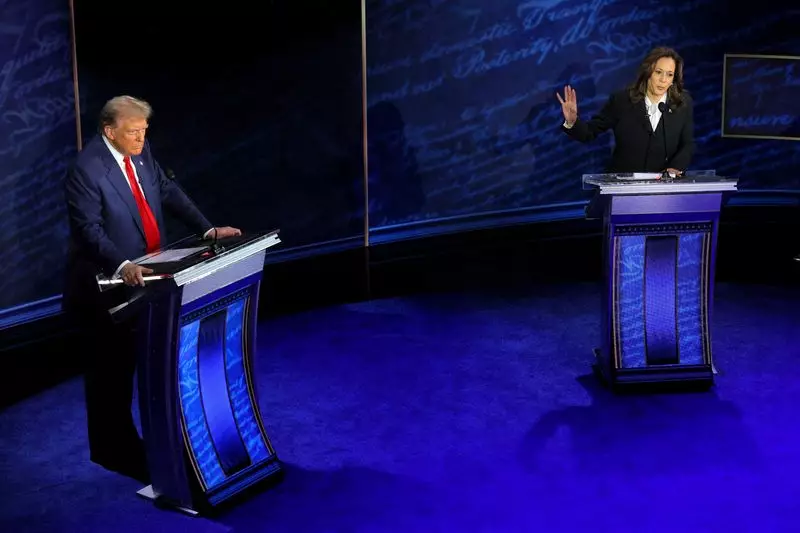As the U.S. presidential election approaches, businesses are finding themselves grappling with the implications of political uncertainty on their financial strategies. A recent survey conducted by the Atlanta and Richmond Federal Reserve Banks in collaboration with Duke University’s Fuqua School of Business reveals that a significant portion of chief financial officers (CFOs) have altered their investment plans due to hesitation surrounding the political climate. This article aims to delve into the findings of this survey and assess how those concerns may affect the broader economic landscape.
The survey underscored a noteworthy trend: nearly one-third of CFOs reported that uncertainties linked to the Nov. 5 elections led to either delaying or reducing their investment initiatives. Specifically, 21% of the 479 CFOs surveyed indicated postponement of investments attributed to concerns surrounding the upcoming election. Additionally, over 15% claimed they had scaled back their investment plans. Collectively, this demonstrates that about 30% of firms are anticipating that political turbulence may hinder their financial long-term commitment. The survey allowed multiple responses, indicating that firms might be affected in various ways and often overlap in their concerns.
In contrast, over 64% of the respondents claimed that their investment strategies remained untouched by electoral uncertainties. This discrepancy highlights a split in sentiment among CFOs regarding the overall economic health and growth potential within the current politically charged environment. While some firms remain steadfast in their approach, others appear hesitant to commit resources in the face of possible volatility and repercussions associated with the electoral process.
The firms predominantly expressing concern regarding investment delays are those that exhibit a lack of optimism about their financial outlook. According to Atlanta Fed economist Brent Meyer and survey director Daniel Weitz, these companies are less inclined to invest in capacity expansion or maintenance of existing assets. Interestingly, these firms tend to focus on cost-reduction investments like equipment and structural improvements rather than initiatives aimed at enhancing productivity or growth. Furthermore, the survey indicated that these companies are not optimistic about making up for any lost growth in the years to follow, particularly in 2025.
This behavior is critical as it points towards a broader trend that firms are more focused on stabilizing their operations rather than pursuing growth opportunities during politically uncertain times. The cautious stance adopted by these firms may resonate across various sectors, leading to a collective slowdown in economic expansion.
Despite the investment-related concerns, the survey findings revealed a paradox: a majority of CFOs appeared optimistic about their own companies’ futures. Approximately 69% expressed bullish sentiment regarding their business prospects, while about 60% conveyed confidence in the overall U.S. economy. These figures remained consistent when compared to data from the second quarter, suggesting a resilient cohort of CFOs despite the impending uncertainties.
Nevertheless, this optimism seems somewhat juxtaposed to the palpable unease surrounding the political environment, particularly the stark contrast between Vice President Kamala Harris and former President Donald Trump, both vying for the presidency. While the survey did not delve into partisan opinions, it is clear that major policy considerations wield significant influence over the CFO mindset.
Policy Concerns: What Matters Most?
When asked about the most pressing issues in light of the upcoming election, around 60% of CFOs highlighted “regulatory policy” as their primary concern. Following closely behind, 59% cited monetary policy, while 54% mentioned corporate tax policy. The focus on monetary policy as a leading priority is indicative of broader economic challenges; as the Federal Reserve has maintained persistently high interest rates to combat inflation, uncertainty about future monetary adjustments looms large. That said, inflation itself has dropped down the list of concerns for CFOs, with only 8% considering it their top worry.
As the election draws closer, the intersection of investor sentiment and political dynamics will likely play a vital role in shaping the economic landscape. The caution exhibited by many firms, coupled with underlying optimism from others, presents a complex but compelling picture of how the corporate sector is navigating this period of uncertainty.
The upcoming U.S. presidential election is casting a long shadow over corporate investment strategies, as evidenced by the findings from the recent CFO survey. While a sizable proportion of companies are opting to delay decisions, the overarching sentiment is marked by cautious optimism. As firms weigh their options and assess the risks involved, understanding the evolving interplay between political dynamics and economic growth will be crucial for charting a sustainable path forward. The ultimate outcomes of the election will have lasting implications, making the need for strategic adaptability more essential than ever in this politically charged environment.

